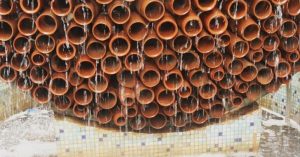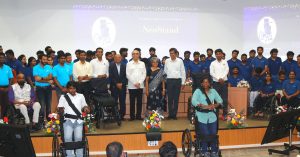IIT Professor’s Novel Technique Produces High-Quality Vermicompost in Half The Time
Dr Ajay S Kalamdhad led a group of IIT-Guwahati researchers to innovate a two-stage fast biodegradation technique that can aid municipal corporations in eco-friendly organic waste management. It also produces ‘Mati Dhan’ — a top-notch vermicompost and organic compost rich in NPK and other essential nutrients for farmers.
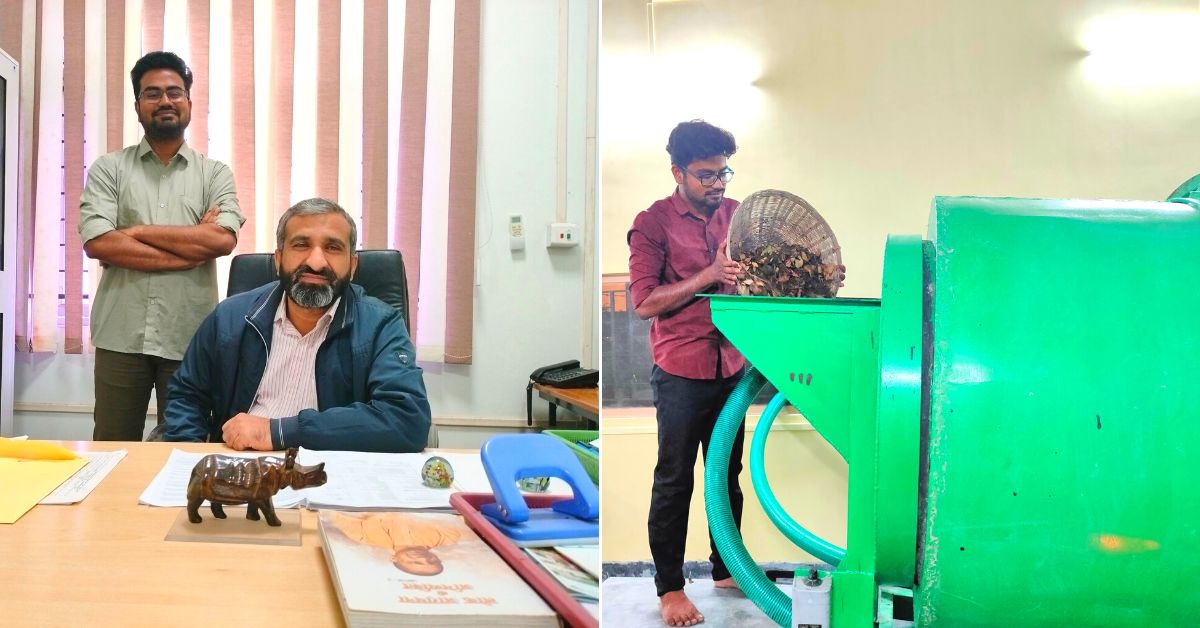
Researchers at IIT-Guwahati have developed a novel two-stage biodegradation technique. This can not only help municipal corporations and other governing bodies to manage organic waste in an eco-friendly manner, but also generate quality vermicompost and organic compost with high NPK (nitrogen, phosphorus, and potassium) value and other micronutrients for farmers.
Led by Dr Ajay S Kalamdhad, a professor of civil engineering at IIT-Guwahati, researchers under the institute’s Waste Management Research Group (WMRG) have devised an efficient and environmentally-friendly technique, which combines Rotary Drum Composting with Vermicomposting (RDVC). This novel technique, the institute claims, minimises biodegradation time, yields vermicompost with 4.2% total nitrogen in 27 days (as compared to the standard 45 to 60 days) for urban waste management and reduces the volume of waste by 71%.
Going further, they also claim that this technique was also used to produce nutrient-rich soil conditioner (vermicompost) from invasive aquatic weeds like the water hyacinth.
‘Mati Dhan’ — a high-quality organic vermicompost produced by the IIT Guwahati researchers by the novel two-stage biodegradation technique — is now available in the market and benefiting local farmers, according to Prof Kalamdhad.
The institute transferred this technology to AMER Private Ltd, a startup incubated at IIT-Guwahati, which is now manufacturing Mati Dhan Organic Vermicompost Fertilizer Manure for Plants — available on Amazon and other online marketplaces.
Studying waste management
Speaking to The Better India, Professor Kalamdhad talks about dedicating his career to solid waste management. During his tenure as a professor, he has worked with many PhD students addressing a diverse range of issues related to solid waste management in the Indian context.
There are two major sets of projects which stand out according to him:
1) Studying different techniques of composting of water hyacinth (a freshwater weed) given its ubiquitous presence in aquatic ecosystems all over Northeast India.
2) Pilot-scale studies on rotary drum composting and anaerobic bi-phased baffled reactor (aka ABBR, which digests any kind of biomass) technology for the biomethanation (a process by which organic material is converted under anaerobic conditions to biogas) of industrial sludge and aquatic weeds.
Both these projects received funding from the Science and Engineering Research Board (SERB) under the Department of Science and Technology, Ministry of Science and Technology.
“We initially found that in the rotary drum composting process, accountable degradation was observed in the first seven days followed by the cooling phase of compost materials. These studies were all conducted in a batch scale,” explains Professor Kalamdhad.
“Further we had also worked on vermicomposting using various worm cultures where we observed that Eisenia fetida (a species of earthworm) was robust in degrading diverse organic wastes including weed biomass. In the process, the results demonstrated that the vermicomposting process was effective not from day 1 but from day 10 to 15 depending on the type of feed. The idea of replacing the initial period of the vermicomposting with rotary drum composting was thought of and studies were conducted accordingly,” he adds.
This effort resulted in the development of the two-stage biodegradation process.
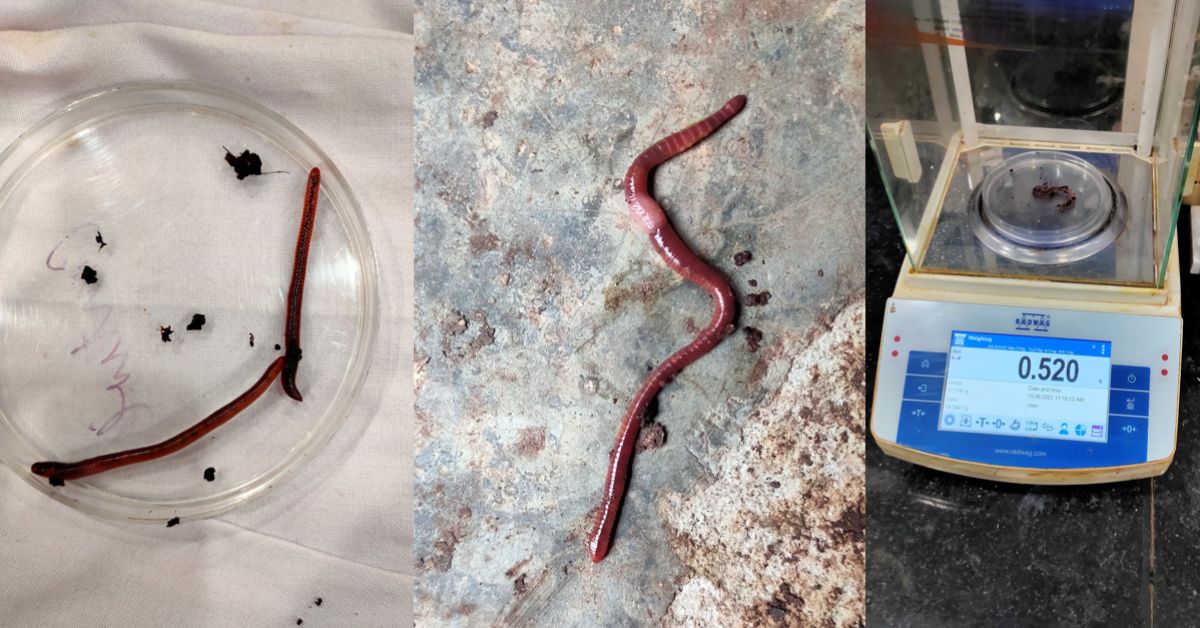
How does this work?
Organic material often makes up more than half of the municipal solid waste deposited in open dumpsites across different Indian cities, generating a lot of heat due to long-term decomposition. This poses serious environmental challenges in the long term.
In comparison to other waste biodegradation techniques, which require two to three months, rotary drum composting (RDC) can convert “diverse organic feedstocks into nutrient-dense compost within just 20 days and significantly reduce the municipal waste volume by 60 to 70%,” according to a recent press release issued by the institute.
Having said that, RDC is known to generate compost of “moderate quality as compared to vermicompost ”. Vermicomposting, meanwhile, is a superior biodegradation process, which requires anywhere between 45 to 60 days. Given the time frame required, municipal corporations can’t employ it on a large scale.
So, the WMRG under Professor Kalamdhad developed a unique two-stage biodegradation technique which combines the best of RDC and vermicomposting to reduce the duration of biodegradation. “The earthworms, Eisenia fetida, can acclimatise faster to partially degraded organic matter from the drum compost and produce vermicompost in just 27 days,” he says.
The final product was proven to be non-toxic and safe to be used as a nutrient-rich soil conditioner (vermicompost) from waste with 4.2% total nitrogen.
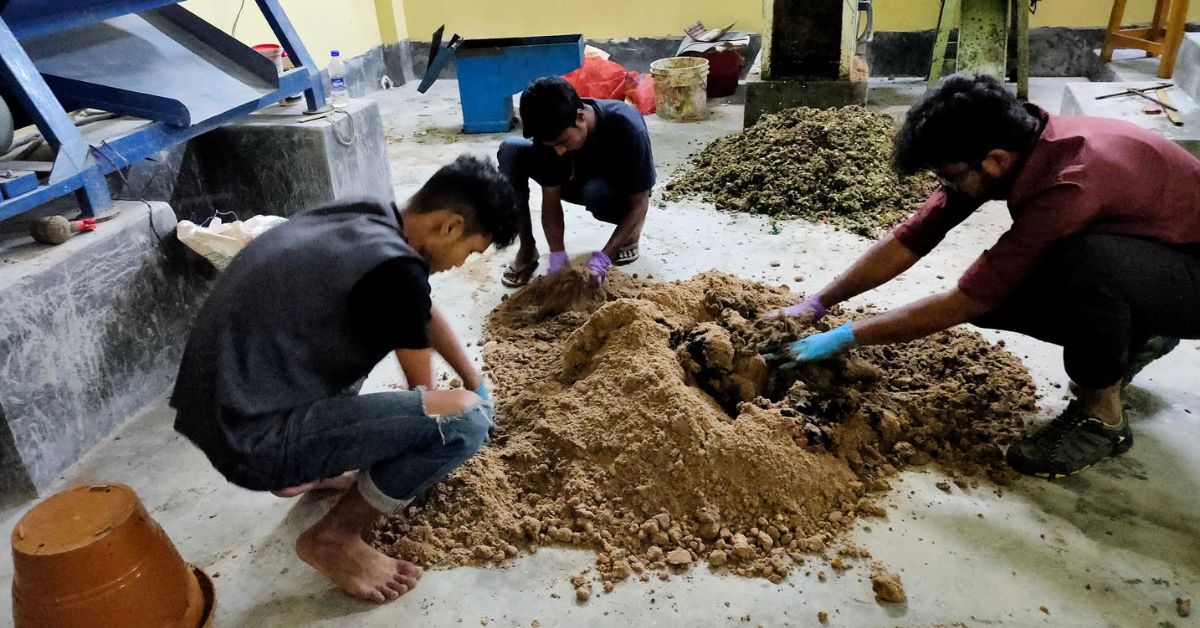
Speaking to The Better India, Professor Kalamdhad says, “The developed technique combines the thermophilic biodegradation of RDC and mesophilic biodegradation of vermicompost. The RDC time was studied to be seven days, and the requirement of vermicomposting was 20 days. We studied the response of the diverse organic waste with the technique before arriving at a conclusion. To explain in layman’s terms, if you use RDC before vermicomposting, it helps vermiculture (earthworms) stabilise the organic waste faster.”
“We have employed all the possible biomasses for the study, majorly including vegetable waste, aquatic weeds, terrestrial weeds and sewage sludge. The experimental verification of this combined technique was conducted both in the laboratory and on a large scale at the Solid Waste Laboratory of IIT Guwahati. A 5,000-litre RDC unit and a 3,000-litre stack vermicomposting unit were established to study the large-scale effect of the process, with the moisture content controlled using horticulture waste collected on campus,” he adds.
Helping him verify this technique is PhD student Mr. Suryateja Pottipati, who experimentally proved the hypothesis. They published the results in reputed international academic journals — including the Journal of Biomass Conversion and Biorefinery, Journal of Environmental Management, Bioresource Technology and Waste Management, among others.
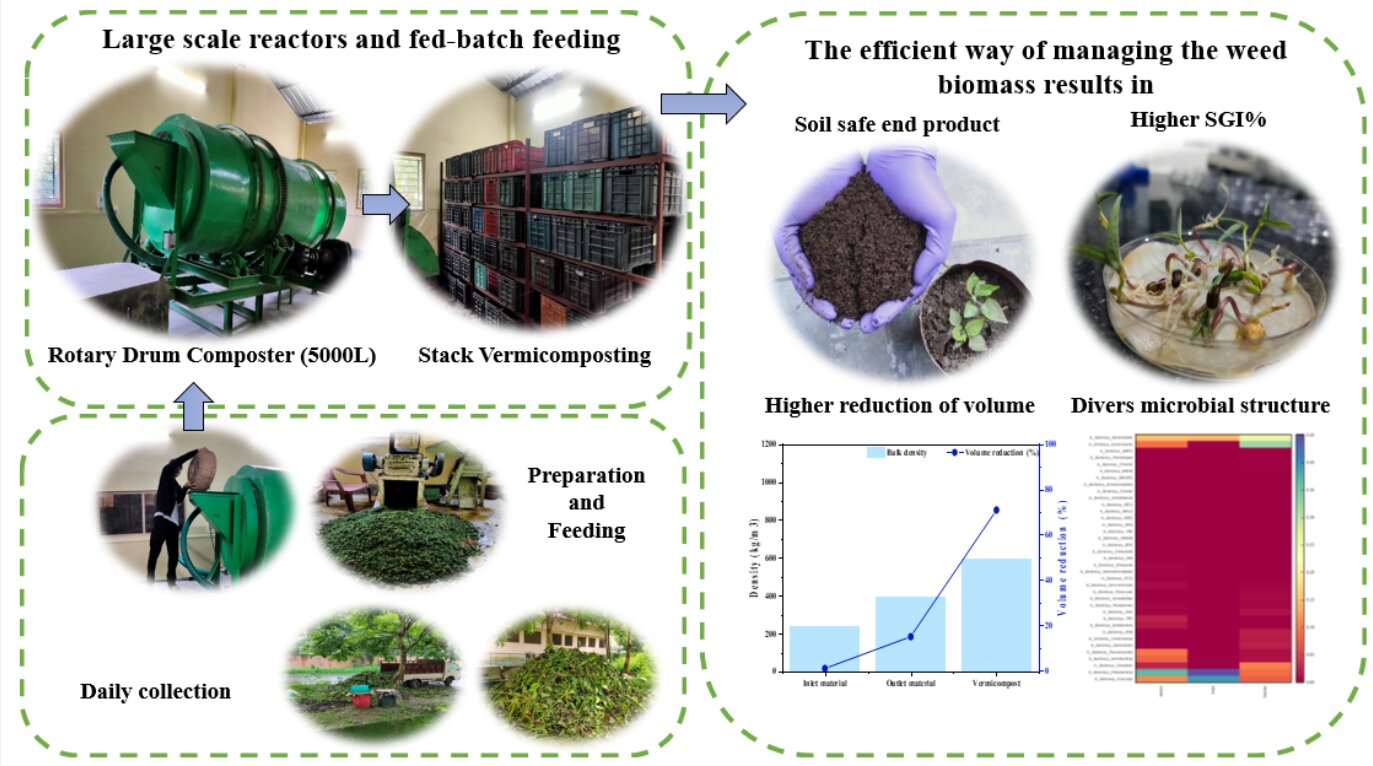
Can Municipal Corporations use this new technique?
In a press release issued by the institute, Professor Ajay Kalamdhad said, “This proven technique not only handles sizable quantities of organic waste but also offers immediate application feasibility for municipal corporations, industries, sewage treatment facilities, aquatic weeds and various organic waste management sectors.”
The release adds, “The scaled-up process successfully produced 100 to 150 kg of vermicompost within a month from 250 to 300 kg of daily waste fed. The increased earthworm count resulted in the secondary end product being the earthworm itself.”
Speaking to The Better India, he explains, “The study included vegetable waste and aquatic weed (water hyacinth) as prime substrates, both in mono-substrate composting and co-composting.”
“In the entire study, we have converted 15 tonnes of waste collected from the markets and ponds around the IIT Guwahati campus (350 kg per day). The confidence that we gained through the study is the basis on which we are suggesting that the technology can handle sizable quantities. We believe this process has the potential to reshape organic waste treatment facilities globally, providing an environmentally compatible solution to mitigate contamination hazards and produce an outstanding soil conditioner,” he adds. If you found our stories insightful, informative, or even just enjoyable, we invite you to consider making a voluntary payment to support the work we do at The Better India. Your contribution helps us continue producing quality content that educates, inspires, and drives positive change. Choose one of the payment options below for your contribution- By paying for the stories you value, you directly contribute to sustaining our efforts focused on making a difference in the world. Together, let’s ensure that impactful stories continue to be told and shared, enriching lives and communities alike. Thank you for your support. Here are some frequently asked questions you might find helpful to know why you are contributing?

(Edited by Pranita Bhat; Images courtesy IIT-Guwahati)
This story made me
-
97
-
121
-
89
-
167




